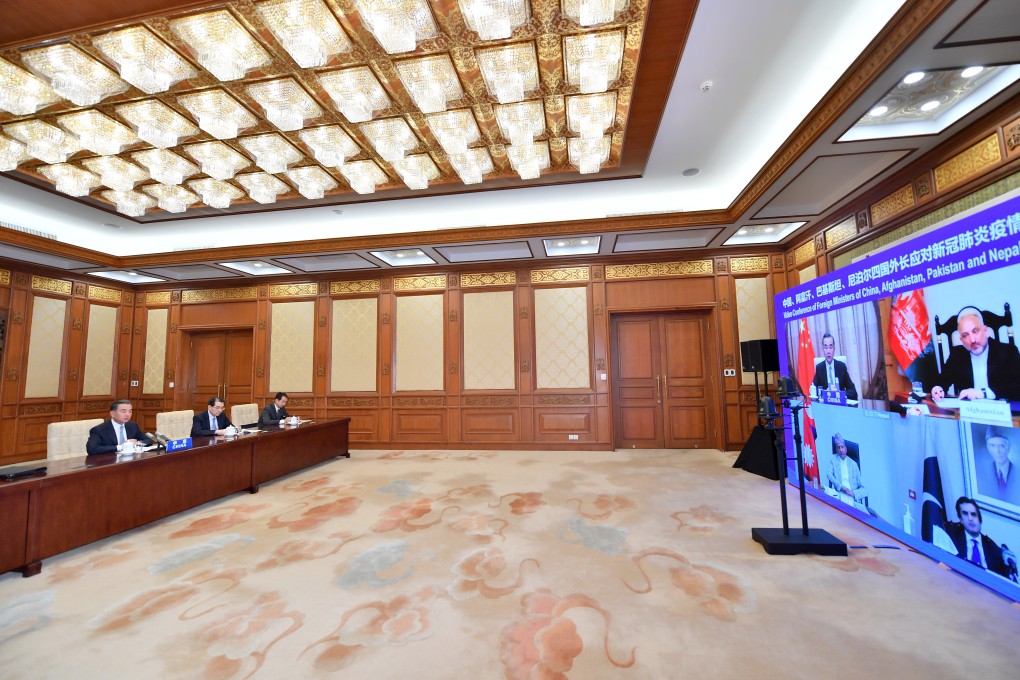Advertisement
‘Himalayan Quad’: is China about to start its own security bloc with Nepal, Pakistan and Afghanistan?
- China already works with a number of Himalayan nations on security and strategic cooperation, partnerships it could now seek to ‘institutionalise’
- But analysts say creating a more formal alliance would be tricky, with Russia – Beijing’s strongest prospective partner – unlikely to join
Reading Time:6 minutes
Why you can trust SCMP
25

One of the most notable measures taken by Washington and its allies in response to China’s rise and the threat it poses to the liberal international order has been the development of the Quadrilateral Security Dialogue, or “Quad”.
China sees the grouping, which brings together Japan, India, Australia and the US, as part of the latter’s policy of encirclement – leading analysts to ask if Beijing might eventually seek to set up a rival bloc, focused not only on security, but other global challenges such as counterterrorism and climate change.
The Quad held its first ever summit-level meeting in March, when the four countries’ leaders pledged to deliver 1 billion doses of Covid-19 vaccine throughout the Indo-Pacific by the end of 2022 – widely seen as a counter to China’s vaccine diplomacy.

Beijing has responded by strengthening cooperation with Russia through “a flurry of military exercises and diplomacy”, according to the US-based Center for Strategic and International Studies’ article “The Return of the Quad: Will Russia and China Form Their Own Bloc?”, which was published last week and noted that the Chinese and Russian foreign ministers met in China’s southwestern Guangxi province following the Quad summit.
Russian Foreign Minister Sergey Lavrov has dismissed reports of a possible military alliance between the two, arguing during a visit to India last week that Moscow is interested in inclusive cooperation and sees such alliances as “counterproductive”. In early March, China’s defence ministry also said that Beijing has no plans to forge a military alliance with Moscow, adding that the two countries “adhere to the principle of non-alignment, non-confrontation and non-targeting of third countries”.
Earlier this month, Yury Yarmolinsky, an analyst with the Belarusian Institute for Strategic Research, wrote in an article published by India’s Observer Research Foundation that recent developments could in theory “push Beijing to institutionalise the Himalayan Quad project involving China, Nepal, Pakistan, and Afghanistan as a counterweight to the Quad.”
Advertisement